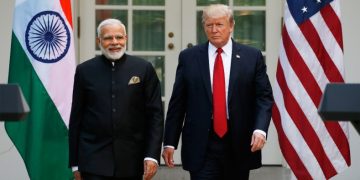Riyadh: Couple of days after Saudi Arabia opened up its doors for foreign visitors, the kingdom imposed restrictions Sunday as to what the tourists do when they visit the country. Saudi Arabia said it would impose fines for violations of public decency including ‘immodest clothing’ and public displays of affection like kissing.
The Saudi Arabian interior ministry said it had identified 19 such ‘offences’ but did not specify the penalties. However, sources said that most of the penalties would be cash-based only.
“The new regulations require men and women to dress modestly and to refrain from public displays of affection. Women are free to choose modest clothing,” a statement from the interior ministry said.
“The regulations are meant to ensure that visitors and tourists in the kingdom are aware of the law relating to public behaviour so that they comply with it,” the statement released Sunday added.
It should be stated here that Saudi Arabia had said Friday that citizens from 49 countries are now eligible for online e-visas or visas on arrival, including the United States, Australia and many other European nations.
Kick-starting tourism is one of the main plans of Crown Prince Mohammed bin Salman’s ‘Vision 2030’ reform programme to prepare the biggest Arab economy for a post-oil era.
Men and women must avoid ‘tight-fitting clothing’ or clothes with ‘profane language or images’, read the instruction on an English language website launched by the tourism authority. “Women should cover shoulders and knees in public,” it added.
However, tourism department’s top official Ahmed al-Khateeb said foreign women are not obligated to wear the body-shrouding abaya robe that is still mandatory public wear for Saudi women.
Prince Mohammed has sought to shake off his country’s ultra-conservative image – lifting a ban on cinemas and women drivers while allowing gender-mixed concerts and sporting extravaganzas.
However, the new public decency guidelines, first approved by the Saudi Arabian cabinet in April, are widely perceived to be vague and have sparked public concern that they would be open to interpretation. Many in the kingdom feel that it will certainly act as a hindrance for foreign tourists planning to visit the country.
Agencies






































